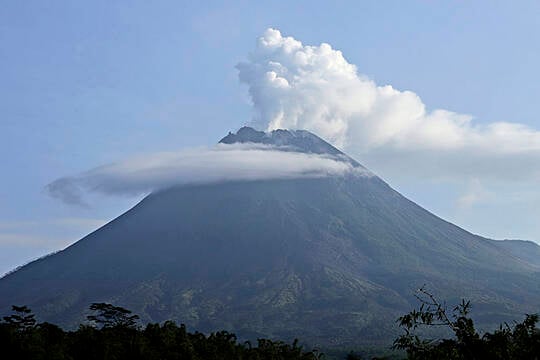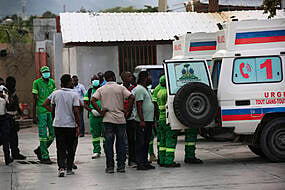Indonesia’s Mount Merapi volcano spewed avalanches of hot clouds on Thursday morning as hundreds more residents were evacuated from its fertile slopes.
Authorities evacuated more than 500 people living on the mountain in Magelang district on Java Island. Thousands have already left their homes and farmland because of the dangers on Indonesia’s most active volcano.
Light eruptions continued during the day — one sending a column of hot clouds rising 200 metres (218 yards) into the air.
The initial eruption was obscured by fog, but using seismic and other data, the Geological Disaster Technology Research and Development Centre estimated the hot clouds spread less than a kilometre (0.6 miles) from the crater.

“Until now, the potential danger is not more than five kilometers (three miles),” said Hanik Humaida, chief of Yogyakarta’s Volcanology and Geological Hazard Mitigation Centre.
The geological authority had raised the alert level for Mount Merapi to its second highest in November after sensors picked up increasing activity. Tourism and mining activities were halted.
Some evacuees had returned to the slopes after the activity subsided but had to leave again on Thursday.
The 2,968-metre (9,737ft) mountain is about 30 kilometres (18 miles) from Yogyakarta city centre. About a quarter of a million people live within 10 kilometres (six miles) of the volcano, according to authorities in surrounding districts.
It spewed ash and hot gas in a column as high as six kilometres (3.7 miles) into the sky in June, but no casualties were reported.
Its last major eruption in 2010 killed 347 people and caused the evacuation of 20,000 villagers.
Indonesia, an archipelago of more than 250 million people, sits on the Pacific “Ring of Fire” and is prone to earthquakes and volcanic eruptions. Government seismologists monitor more than 120 active volcanoes.







